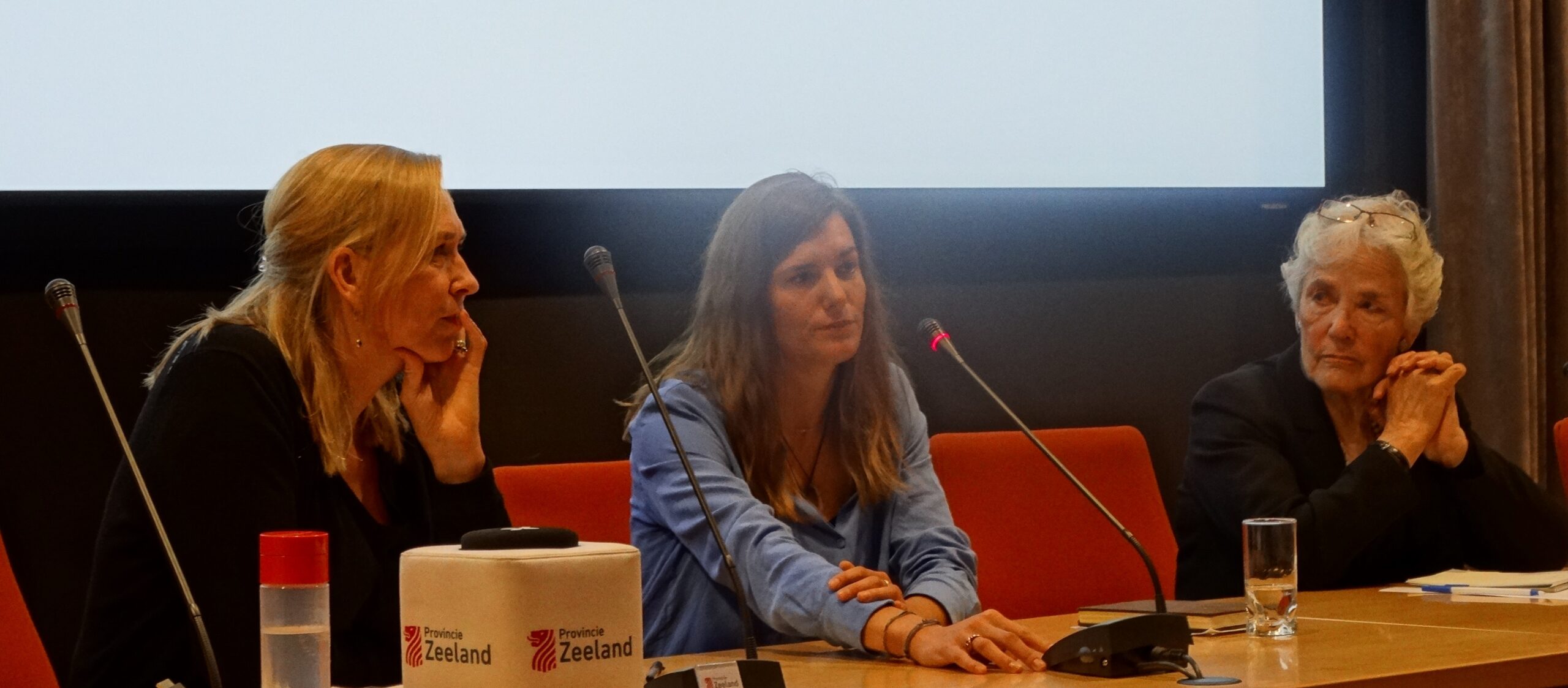In the spirit of FDR’s fourth freedom, the “Freedom from Fear,” the RIAS hosted a public symposium “Seeking Refuge: Historical and Contemporary Perspectives on Refugees and Asylum” on 27-28 September 2018.
The symposium brought together a multidisciplinary group of scholars from the fields as diverse as anthropology, law, and history. For two days attendees were introduced to various cases of refuge, both past and present, from cities of sanctuary in the antebellum American South, to a nineteenth-century Finland ravaged by famine, to present-day cities like Utrecht where residents and civil servants have taken it upon themselves to offer undocumented migrants a bed, bath, and bread (“bed, bad, brood”).
On the first day, keynote speaker Peter Rose, professor of sociology and anthropology at Smith College (MA), opened the symposium with a talk about the “dependency of the dispossessed.” Professor Rose spoke eloquently about “the sociology of exile, the politics of rescue, and the psychology of altruism.” He explained how difficult it is to draw a clear dividing line between push and pull factors – those forced out and those who are drawn in. Both have little hope of returning to their countries of origin if the political situation in those countries does not change. Rose also argued for the necessity of acknowledging the differences between the “princes and paupers of refuge,” such as funds, connections, and international recognition. Finally, Rose emphasized the importance of research centred on refugee workers and caretakers. What drives these people who sometimes risk their own lives for the sake of others? Do they consider their work a job or a calling? And what happens when their morals clash with those of the states in which, and for which they operate?
In the afternoon panel titled “Journeys over Land and Sea,” Jeffrey Kerr-Ritchie (Howard University), Irial Glynn (Leiden University) and Ann-Christin Wagner (University of Edinburgh) sketched detailed impressions of migration patterns that involved refugees, and how they are/were impacted by war and the proximity, porosity, or solidity of borders (including maritime borders).
On day two, the symposium continued with a panel on sanctuary cities, featuring Viola F. Müller (Leiden University), Hedy Rose (Wesleyan University) and Barbara Oomen (University College Roosevelt) All three speakers emphasized the importance of urban environments for refugees looking to hide from their oppressors – from runaway slaves to Jews during WWII, the latter topic illuminated upon by Hedy Rose’s powerful account of her own hiding in Amsterdam during the Nazi occupation. The panel also revealed how cities of sanctuary often provide more overt protection for refugees by openly defying federal/national law and neglecting to prosecute refugees in the way that the national state would see fit.
The afternoon panel was dedicated to civil society and government, and featured Andrew Newby, (Tampere Institute for Advanced Social Research), Teuntje Vosters (Leiden University), and Kees Groenendijk (Radboud University of Nijmegen). The question that occupied this panel was the role that governments (both national and European) and NGO’s played in tackling refugee crises. How does NGO action compare across space and time, and how have governments developed to adopt some of the tasks that were previously the sole responsibility of NGOs?
The honor of closing the symposium fell to former director of the United Nations High Commission for Refugees, Udo Janz. Mr. Janz’s extensive knowledge of the contemporary refugee crisis was truly something to marvel at. Janz explained that the majority of refugees hail from only five countries – Afghanistan, Somalia, Syria, Burma (Myanmar), and South Sudan – and that eighty percent of them are housed not in Europe but in the Global South. He emphasized that the issue has been structurally underestimated by European leaders, and that it is not something that will just blow over. Rather, contemporary refugee migration is here to stay, and as such requires a unified and more humanitarian Europe to tackle appropriately.
The two keynote lectures can be found online at TXTRadio.
The symposium was organized in conjunction with the NWO Vidi project “Beacons of Freedom: Slave Refugees in North America, 1800-1860” under the supervision of Professor Damian Pargas at Leiden University, and with the assistance of the NWO Vici research team “Cities of Refuge” under the supervision of Professor. Barbara Oomen of University College Roosevelt.



